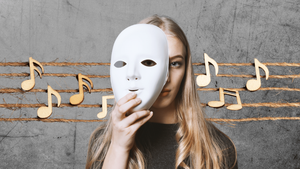The big three North American songwriter collecting societies - ASCAP and BMI in the US, and SOCAN in Canada - have all announced their policies regarding the logging of new works where a songwriter has used AI as part of the creative process.
An official statement explains that under those policies, “musical compositions that are entirely created using AI tools are not eligible for registration with any of the individual societies”.
However “partially AI-generated musical works” - aka ‘AI-assisted works’ - which “combine elements of AI-generated musical content with elements of human authorship” can now be logged and will be part of the repertoires each society respectively licenses.
Commenting on that position, ASCAP CEO Elizabeth Matthews says, “Songwriters and composers have always experimented with innovative tools as part of their creative process and AI is no exception”.
She then adds, “We are clarifying our registration policy to now welcome partially AI-generated musical works because we believe AI can be a powerful tool for our members, as long as the law puts humans first and technology companies play fair and respect the rights of creators”.
As streaming platforms start to deprioritise, demonetise or delete AI generated works there is an increasingly big debate within the music community over what policies each platform is adopting, how they are identifying AI-generated works, and how they are distinguishing AI-generated and AI-assisted music.
So far there is very little clarity regarding any of that, though there are some discussions behind the scenes about how to facilitate a consistent approach across all platforms and music companies.
Within the music industry, the collecting societies also have an important role when it comes to identifying the line between AI-generated and AI-assisted, given that any new works protected by copyright where royalties will be due need to be entered in the industry’s main databases, which are run by the societies.
Under most copyright systems, AI-generated music is not protected by copyright, but AI-assisted probably is. In the US, where there is a formal copyright registration system, the Copyright Office has provided some guidance on how much work a human creator needs to do in order to deem a new work AI-assisted instead of AI-generated. Though there remains much debate on that distinction.
As collecting societies and, hopefully, streaming platforms start to be clearer about their AI policies, the devil will always be in the detail, of course, and the rules will likely need to be honed.
Earlier this year the South Korean collecting society KOMCA said that it wouldn’t allow any work where AI has been used in the creative process to be logged, so that includes AI-assisted works. Although it said that would be its position while “legal standards for AI music have not been established”, and that it would develop its policies as both the technology and copyright law evolves.
While there will be disagreement across the music industry as to what approach should be taken, a good starting point is to clarify what each organisation’s current policies are, which makes this week’s announcements by BMI, ASCAP and SOCAN a welcome development.
Commenting on those announcements, BMI CEO Mike O’Neill says, “This is an important first step in protecting human creativity as AI technologies evolve, while supporting the songwriters and composers who choose to use AI as a tool to enhance their creative process”.
While SOCAN CEO Jennifer Brown adds, “This alignment creates a legal and ethical path forward for AI in music. It recognises that music creators are embracing new tools, while reinforcing our commitment to what matters most: respect for their work and the protection of human creativity”.

